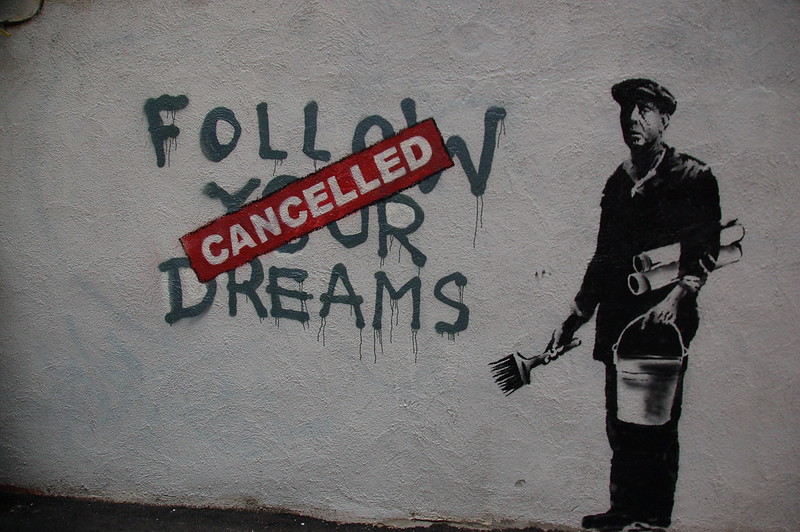We need global unionism to balance global capitalism
Amazon workers around the world strike in hopes to change mega corporations responsibilities to its workers
On Black Friday, one of the busiest shopping days of the year, Amazon employees around the world united under the banner “Make Amazon Pay” walked off the job or refused to go to work.
They have a number of grievances ranging from inadequate pay to unsafe working conditions during the pandemic, and Amazon’s role in the growing climate crisis “If Amazon is trying to eat the world, it’s also bringing many disparate sets of workers and activists and communities together to fight against them,” says Alex Press, staff writer for Jacobin magazine and host of an Amazon employee podcast.
According to a report by DemocracyNow! the workers demand better wages, stricter workplace COVID-19 safety protocols, better sick pay, a commitment to reducing carbon emissions by 2030, access for unions at the workplace and for Amazon to pay its fair share in taxes.
The protests took place in over 20 countries and received support from a coalition of 70 organizations, including Greenpeace, Oxfam and Amazon Workers International. An article by Forbes magazine offers Amazon’s perspective. Kelly Nantel the director of Amazon’s National Media Relations defends Amazon and assures measures are being taken, “We are inventing and investing significantly in all these areas, playing a significant role in addressing climate change with the Climate Pledge commitment to be net zero carbon by 2040, continuing to offer competitive wages and great benefits, and inventing new ways to keep our employees safe and healthy…”
Each Amazon plant, each Amazon distribution center, and each Amazon office building from each of the 20 countries around the world who participated in this strike have their own story. Each story is unique, but they all share the same two goals: better working conditions within the mega-corporation and demanding Amazon take responsibility for the world it has taken over.
For the workers at the Bessemer, Alabama distribution center, the most prominent of the grievances is over their efforts to unionize. Last February, a vote to unionize failed under suspicious circumstances. Amazon installed a ballot drop box outside of the facility, despite the fact that workers could mail their ballot from home. Many workers did use the drop box and many of them feel like their ballots were opened, tampered with, or thrown out.
The suspicions were valid enough to garner the attention of the National Labor Relations Board and a new union vote is possible in the spring of 2022. The president of the Retail, Wholesale and Department Store Union, Stuart Appelbaum said in a statement the new ruling “confirms what we were saying all along—that Amazon’s intimidation and interference prevented workers from having a fair say in whether they wanted a union in their workplace.”
In recent decades, stories like this have become far too common. The world economy has become increasingly dominated by international corporations like Amazon, Toyota and Samsung. These corporations hop around the world in search of the lowest wages, lowest taxes, and lightest regulations.
Here in America, the once healthy balance between capital and labor has once again been tipped in capital’s favor. Unionism is at historic lows, and according to the book From the Folks Who Brought You the Weekend, income inequality has risen to Great Depression levels.
An example found here in the Puget Sound is described in articles by Leeham News and Market Watch. The aerospace company Boeing has a long and successful history of employing tens of thousands of workers in our state. In recent years the company has begun moving hundreds of good paying jobs to Right to Work states hostile to unionization like South Carolina and Texas.
The direct effect of this outsourcing and corporate relocating here in America has been the loss of many unionized manufacturing jobs, stagnant wages, underfunded social services and a dangerous reliance on foreign-made goods. The effect overseas can be much worse.
In a perfect world there would be nothing fundamentally wrong with corporations operating in multiple countries. The idea of global standardization of goods and services has a lot of merit. But we don’t live in a perfect world, and the benefits of global capitalism are not the whole story.
This modern phenomenon of massive international corporations has an extremely dark side as well. The growing influence and power of these corporations are used to dodge taxes, break strikes, corrupt local governments and avoid important environmental and safety regulations. Essentially this tactic allows powerful companies to enjoy all the benefits of their position while ignoring their responsibilities to the communities in which they operate.
In the past, governments have been a key ally to labor and social activism. Labor history shows us that labor is often not strong enough to stand against capitalists on its own. Laws, legislation and committed social activism have played crucial roles in the gains made by the once healthy American middle class. The recent tactics of international capitalism have stripped labor of one of its strongest potential allies.
We need a stronger United Nations with real teeth to require corporations to pay the same wage to workers in Malaysia as they do workers here in America. Corporations must also be required to adhere to reasonable safety and environmental regulations no matter what country they operate in. A stronger UN would be the only civil entity with the ability to enact these types of universal regulation.
In order for the global working class to stay in the fight, we need global unionism to answer global capitalism. Workers must coordinate their efforts across borders and oceans; there is little hope for any labor movement otherwise. The events around the world on Black Friday, as well as here at home in Bessemer, Alabama, are the exact types of things we need to see more of.
Good show Amazon employees, give ’em hell.



